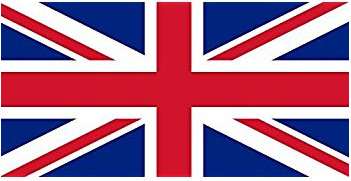One of the most important factors leading to immune system decline is the greatly reduced rate of release of growth hormone by the brain as we age. This hormone, produced by the pituitary gland, begins to fall off in quantity after your teens. Since the thymus gland requires growth hormone to function properly, this decrease in growth hormone output is a severe blow to the immune system. Growth hormone is normally released in response to sleep, exercise, and fasting. In fact, the old wives’ tale that you should starve a fever has a ring of truth because the growth hormone released as a result
of fasting (but not starvation) stimulates the immune system.
Can we improve the function of our immune system and slow its rate of aging? Yes, to some extent we can. In fact, it is now possible to slow and even partially reverse aging changes in the immune systems of aged animals. This has been done in animals and in humans using newly discovered techniques, the most important being nutrients like vitamins
A, C, E, the minerals zinc and selenium, drugs like mercaptoethanol, hormones like thymosin, and complex techniques such as T-cell cloning. You can take advantage of some of the simpler techniques now; still others are in the experimental stage and not likely to be released by the FDA for wider- range use in the near future.
Here are examples of methods you can use to improve function of your own immune system, including supplementation of your diet with particular vitamins, minerals, and amino acids:
- Vitamin E acetate was found by Dr. Cheryl F. Nockels of the University of Colorado to stimulate the immune system of a number of animals, including chickens, lambs, turkeys, and rats. The control animals (which did not receive a vitamin E mega-supplement) did receive in their diet what agricultural nutritionists consider to be adequate vitamin E (40 to 60 I.U. in each kilogram of food. This ordinary feed level is al- ready several times as much E as most Americans get in their diet and 4 or 5 times the FDA Recommended Dietary Allow-
ance for humans), and all were old enough to have adult immune capabilities. The experimental (but not the control!)
animals were given in addition to the same diet as the controls a supplement of 200 to 2,000 1.U. of E in each kilogram of food. These dosages were effective in causing the treated animals’ immune systems to respond much more strongly (a tenfold increase in the performance of B-cells, and three to five times improvement in activity of T-cells) to the presence of bacteria, viruses, and cancer cells than the immune systems of the animals supplemented with E at lower levels.
- Vitamin A can prevent the decrease in thymus weight and numbers of thymic lymphocytes that occur in injuries. Vitamin A has a stimulatory effect on the immune system and can protect animals from developing tumors in the presence of some chemical carcinogens (cancer-causing agents). Excess doses of vitamin A, however, can cause serious harm and even foster the development of some cancers.
- Arginine and ornithine, both amino acids, were able to block formation of tumors in mice inoculated with MSV (a cancer-causing virus). A 1 percent arginine or ornithine supplement to mouse chow increased the animals’ thymus weights and lymphocytes in both MSV and non-MSV injected mice and markedly extended survival time in the animals receiving the cancer virus inoculation.
- Proteases (enzymes which split protein molecules),
such as trypsin, bromelain (found in raw pineapple), and papain (found in papaya) stimulate formation of blast cells (an early developmental immune system cell) in rat thymocytes,
a type of white blood cell derived from the thymus gland. - Zinc deficiency can cause severe thymus shrinkage,
which can be reversed with zinc. The results of animal experi-
ments suggest that many humans may be zinc deficient, that
is, receive less than the optimum amount. - Some thiol compounds (these contain a sulfur-hydrogen link called a sulfhydryl bond) can greatly stimulate the immune system. However, some of these compounds in high doses can damage organs such as the kidneys. A road map through the many available chemicals and nutrients is necessary to select effective and yet relatively safe substances. This site provides this road map to a substantial extent. Mercaptoethanol is one thiol that has been used beneficially in old
mice, restoring antibody response to the foreign test “invaders” (sheep red blood cells) to that of young adult mice. However, mercaptoethanol is not available to the public for this use, nor is enough known at this time to justify its long-term use in humans. Cysteine, another thiol compound, which is a nutrient and an amino acid, is also an effective immune system stimulant, available at some health food stores. Vitamin B-1 (thiamine) is a thiol as well, and although it has not been tested in this regard, it is another possibly effective immune stimulant having low toxicity.
Are you interested in life extension products?
mod4all ships all major brands of Modafinil from the UK
All products shipped from the UK by tracked post. We guarantee delivery.
We guarantee delivery, free reshipping.
Any questions at all about payments, shipping, etc. Anything at all, just email us.

Comments (0)